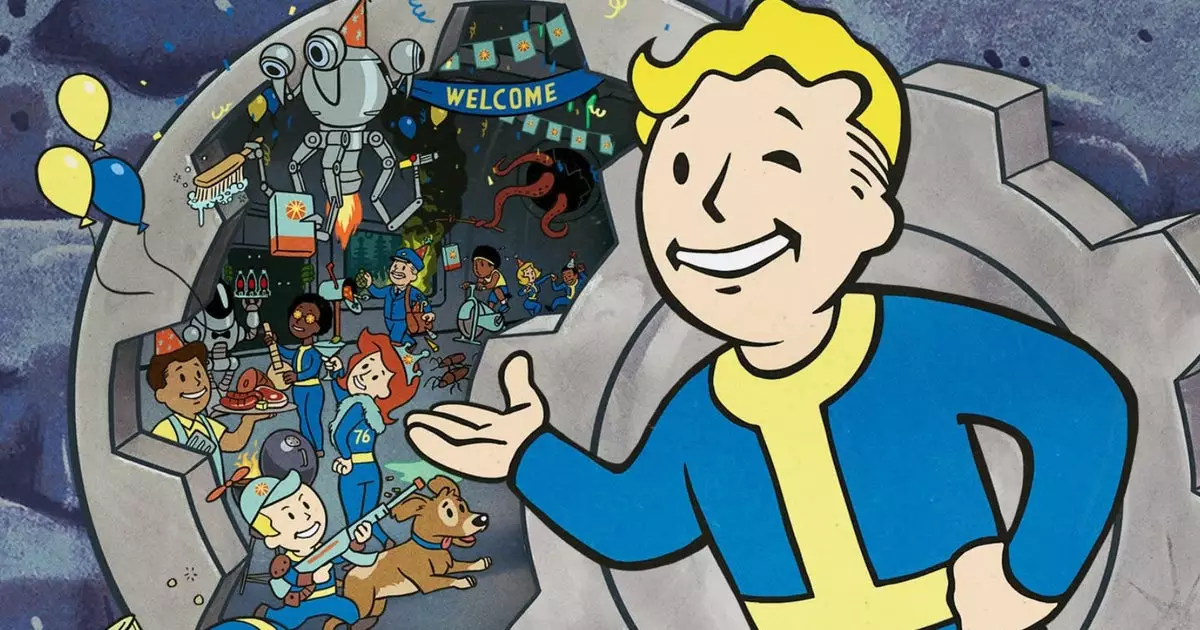In an era where the video game industry is booming, the voices of the workers behind the scenes are becoming increasingly critical. The phenomenon of unionization among video game developers is no longer an exception but rather a growing trend, reflecting a collective stand for fair wages and improved working conditions. The recent developments within ZeniMax Media, home to iconic franchises such as Elder Scrolls, Doom, and Fallout, are a testament to this movement. Approximately 300 unionized employees voted overwhelmingly to consider strike action if negotiations with their parent company, Microsoft, do not yield satisfactory results regarding wages and workplace policies. This decision highlights an urgent need for equity and recognition in an industry renowned for its financial success.
A Fight for Basic Rights
ZeniMax Workers United, established in late 2023, epitomizes the fight for workers’ rights within this cultural powerhouse. Their ongoing discussions with Microsoft have not just stalled but have faced significant challenges over the past two years, with critical issues such as remote work policies and the outsourcing of game testing still unresolved. This negotiation saga puts the spotlight on the disparity between the enormous profits of these companies and the earnings of their employees, leading to a growing sense of desperation among the ranks. When workers at such a high-profile organization cite challenges related to basic living costs as an obstruction to their job satisfaction, it is a call to action that cannot be ignored.
A Critical Standoff with Corporate Giants
Microsoft’s initial acknowledgment of the ZeniMax union may seem promising; however, the reality at the negotiation table tells a different story. The essence of their “neutrality” agreement with the Communication Workers of America (CWA) appears to be more about maintaining a façade of goodwill than genuinely supporting unionization efforts. The discontent within these workspaces is palpable, highlighted by the fact that employees feel the need to strike after only modest moves towards addressing their concerns. QA workers have described a mismatch between their contributions to renowned titles and the benefits they receive, underscoring the need for substantial and genuine engagement from management.
The Human Cost of Corporate Decisions
Statements from workers like Zachary Armstrong have voiced a universal sentiment among employees: the struggle to maintain livelihoods amidst corporate decisions that prioritize profit over people. The reality of escalating costs of living juxtaposed with stagnant wages creates not only stress but genuine fear about the prospects of starting families or achieving financial stability. Meanwhile, the industry’s reliance on outsourcing work only exacerbates these concerns. For a company as large as Microsoft, the expectation is that they should provide meaningful compensation and benefits, but the reality tells a different story, one that paints a picture of negligence and corporate indifference.
The Threat of Technological Disruption
The looming threat of generative AI technology further complicates the landscape for workers. As Microsoft invests billions into AI development, there’s an underlying fear of displacement among employees struggling to secure their jobs in a rapidly evolving environment. The layoffs accompanying Microsoft’s acquisition maneuvers have not gone unnoticed, raising alarm that advancements in technology may come at the expense of hardworking individuals. This fear must be addressed alongside immediate concerns over wages and working conditions; the two are inexorably linked in the quest for job security.
A Call to Action for the Industry
As ZeniMax and Microsoft navigate this turbulent time, the implications of their decisions stretch far beyond mere negotiation outcomes. The unfolding situation serves as a crucial reminder of the power dynamics inherent in the gaming industry, where the contributions of creative minds are often undervalued. The essence of play is to create immersive worlds, and to do so, we must ensure that the creators themselves are empowered and supported. If the gaming industry is to live up to its promises of innovation and community, it must invest in its most valuable resource: its workforce. The ongoing labor movement within this space may just be the catalyst for a more equitable future, where every employee can thrive alongside the industry’s successes.

